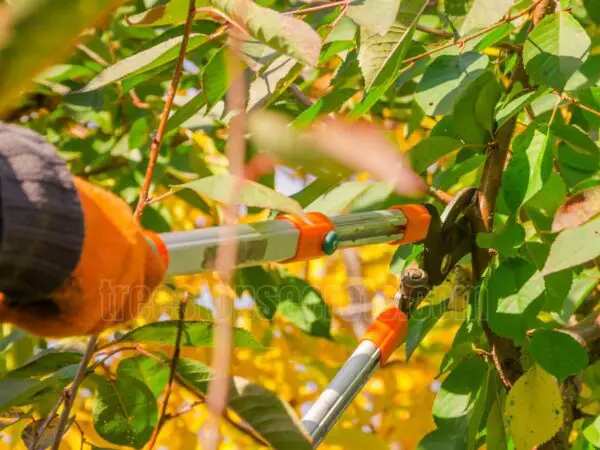Curious about whether dogs can eat grapefruit? It's essential to understand the potential issues surrounding grapefruit ingestion for our canine companions. This article delves into the contact, ingestion, and effects of grapefruit on dogs. We'll explore the causes, symptoms, and steps to take if your dog ingests this fruit. While grapefruits are an excellent source of nutrients for people, they can pose serious health risks to dogs even in small quantities.
Understanding how certain foods interact with a dog's body is crucial for their well-being.
Can Dogs Consume Grapefruit?
Grapefruit Toxicity in Dogs: An Overview
Grapefruit is toxic to dogs due to the presence of psoralens and essential oils, which can cause gastrointestinal upset, depression, photosensitivity, and in severe cases, even kidney failure. The ingestion of grapefruit by dogs can lead to adverse health effects, making it crucial for pet owners to be aware of the potential dangers associated with this fruit. Psoralens are found in the highest concentration within the peel and pith of the grapefruit, posing a significant risk if consumed by dogs.
Symptoms of Grapefruit Poisoning in Dogs
Symptoms of grapefruit poisoning in dogs include vomiting, diarrhea, weakness, tremors, and increased heart rate. Signs such as sensitivity to light and skin rashes may also manifest due to the photosensitive compounds present in grapefruits. It's important for pet owners to recognize these symptoms promptly and seek veterinary care if their dog has ingested grapefruit or is displaying any unusual behaviors.
What Happens When a Dog Eats Grapefruit Flesh?
When a dog consumes grapefruit flesh, it can lead to stomach discomfort, vomiting, and diarrhea. The citric acid present in grapefruits can cause irritation in a dog's digestive system. Moreover, the consumption of large amounts of grapefruit flesh can significantly disturb a dog's gastrointestinal balance and overall well-being.
Dogs lack specific enzymes required to break down certain compounds present in grapefruits effectively. As a result, these compounds can accumulate in their bodies and lead to toxicity over time. Therefore, it's best for pet owners to avoid feeding their dogs any part of the grapefruit.
Understanding Grapefruit Poisoning
Causes of Toxicity in Canines
Grapefruit contains compounds that can be toxic to dogs, such as psoralens and essential oils. These substances can cause adverse reactions in canines, including gastrointestinal upset, diarrhea, vomiting, and potentially more severe symptoms. It's important to understand that a dog's digestive system processes certain foods differently from humans, making them susceptible to toxicity from certain fruits like grapefruit.
Factors contributing to grapefruit toxicity in dogs include the ingestion of large quantities of grapefruit or its seeds. The seeds contain a higher concentration of the harmful compounds, intensifying the potential for poisoning in dogs. The size and weight of the dog play a role in how their body reacts to ingesting grapefruit; smaller dogs may experience more severe symptoms even with a smaller amount consumed.
Identifying Poisoning Symptoms
Recognizing signs of poisoning in dogs after consuming grapefruit is crucial for prompt intervention. Symptoms may include drooling, lethargy, weakness, tremors, and signs of abdominal discomfort. In severe cases, dogs may exhibit seizures or become unresponsive. Monitoring for these symptoms is essential if there is suspicion or confirmation of grapefruit ingestion by a dog.
Methods for identifying poisoning symptoms also involve observing changes in behavior and physical appearance. Dogs experiencing grapefruit poisoning may display an aversion to food or water and exhibit signs of distress or discomfort when trying to defecate or urinate. Any unusual behavior should prompt immediate attention and evaluation by a veterinarian.
Immediate Actions to Take
If it's discovered that a dog has ingested grapefruit unexpectedly, immediate actions are necessary to mitigate potential harm. Contacting a veterinarian promptly is crucial for professional guidance on appropriate steps to take based on the dog's health status and the quantity of grapefruit consumed. Inducing vomiting may be recommended if the ingestion occurred recently; however, this should only be done under veterinary supervision.
Necessary immediate actions when a dog ingests grapefruit include preventing further access to any remaining fruit or seeds within reach and closely monitoring the dog for any developing symptoms. Seeking veterinary care allows for thorough assessment and potential treatment if toxicity symptoms manifest. Quick action significantly increases the chances of successful intervention and recovery for affected dogs.
Treatment for Grapefruit Poisoning in Dogs
Veterinary Interventions
Veterinary interventions play a crucial role in addressing grapefruit toxicity in dogs. When a dog consumes grapefruit, it is vital to seek professional help promptly. Veterinarians can provide immediate and appropriate treatment to mitigate the effects of grapefruit poisoning. For instance, they may administer activated charcoal to absorb the toxins and prevent their further absorption into the bloodstream. Intravenous fluids may be administered to support kidney function and flush out toxins from the dog's system.
It is important to note that grapefruit contains certain compounds that can be toxic to dogs, such as psoralens and essential oils. These substances can lead to symptoms like vomiting, diarrhea, lethargy, and even more severe reactions in some cases. Seeking veterinary assistance ensures that the dog receives specialized care tailored to its specific condition. Furthermore, veterinarians may perform diagnostic tests to assess the extent of toxicity and determine the most effective course of treatment.
Recovery and Aftercare
After receiving veterinary treatment for grapefruit poisoning, it is essential to prioritize post-treatment care for the affected dog's recovery. This includes providing a calm and comfortable environment for the dog to recuperate in. Ensuring that the dog has access to clean water at all times is crucial for supporting its recovery process. Monitoring the dog closely for any lingering symptoms or signs of distress is imperative during this period.
Supporting a dog's recuperation after experiencing grapefruit poisoning involves adhering to any medication schedules prescribed by the veterinarian diligently. This may include administering medications or supplements aimed at aiding recovery or alleviating specific symptoms caused by grapefruit ingestion. Moreover, maintaining a balanced diet suited to the dog's nutritional needs can contribute significantly to its overall well-being during recovery.
The Debate Around Grapefruit for Dogs
Examining Potential Benefits
Feeding dogs safe fruits like grapefruit can offer various benefits. Fruits are rich in essential vitamins, minerals, and antioxidants, which contribute to a dog's overall health. For instance, grapefruit contains vitamin C, which supports the immune system and aids in collagen production for healthy skin and joints. The fiber content in fruits promotes digestive health in dogs by regulating bowel movements.
Incorporating fruits into a dog's diet can have positive impacts on their well-being. When consumed in moderation and following safety guidelines, fruits provide vital nutrients that contribute to a balanced diet for dogs. Furthermore, certain fruits such as blueberries and apples serve as natural teeth cleaners for dogs, helping to maintain oral hygiene.
Highlighting the nutritional advantages of including fruits in a dog's diet is crucial. By offering a variety of safe fruits like grapefruit, pet owners can ensure that their furry companions receive a diverse range of nutrients essential for their overall health and vitality.
Risks Versus Rewards
While there are potential benefits to feeding dogs certain fruits like grapefruit, it's important to weigh these against the associated risks. Some fruits contain substances that may be harmful or toxic to dogs if consumed in large quantities or improperly prepared. Therefore, it's crucial to compare the potential benefits with the possible risks of fruit consumption by canines.
Evaluating the trade-offs between the advantages and disadvantages of including fruits in a dog's diet is necessary for informed decision-making. For example, while grapes are known to be toxic to dogs due to potential kidney damage, grapefruits are generally considered safe when given in small amounts without seeds or rind.
It’s essential for pet owners to be aware of any allergies or sensitivities their pups may have before introducing new foods into their diets. Understanding individual canine dietary needs ensures that any rewards from incorporating safe fruits outweigh the potential risks.
Is Citrus Safe for Dogs?
Safety of Grapefruit Flesh
Grapefruit flesh can pose risks to dogs if consumed. The fruit's flesh contains essential oils and psoralens, which can be toxic to dogs when ingested in large amounts. These substances may lead to stomach discomfort, vomiting, diarrhea, or more severe symptoms such as photosensitivity or even liver damage.
Citrus Fruits and Canine Health
Citrus fruits, including grapefruits, can impact a dog's health in various ways. While small amounts of citrus fruits might not harm all dogs, the high acidity of these fruits could potentially cause gastrointestinal upset in some pets. The seeds and rind of citrus fruits contain higher concentrations of essential oils and psoralens, which are particularly hazardous to dogs.
When it comes to safety concerns related to grapefruit flesh for dogs:
- Essential oils present in grapefruit flesh can trigger digestive issues like vomiting and diarrhea.
- Psoralens found in grapefruit can lead to photosensitivity and liver damage in dogs if consumed excessively.
Regarding the impact of citrus fruits on canine health:
- The high acidity of citrus fruits may cause gastrointestinal disturbances in some dogs.
- Seeds and rinds of citrus fruits contain higher concentrations of toxic substances that pose potential health risks to dogs.
Safe Fruits for Dogs
Healthy Fruits for Canine Consumption
It's essential to choose options that are safe and beneficial. While some fruits can be harmful to dogs, there are several healthy and nutritious alternatives that can be safely included in their diets. For instance, blueberries are an excellent choice as they are packed with antioxidants, fiber, and vitamins C and K. Another option is apples, which provide a crunchy texture and are rich in fiber and vitamin A.
Bananas offer potassium, vitamins B6 and C, biotin, and copper. These nutrients support the overall health of dogs by aiding digestion and promoting heart function. Watermelon is also a safe fruit for dogs when served in moderation. It contains vitamins A, B6, and C along with antioxidants that contribute to good health.
Alternatives to Grapefruit
Instead of offering grapefruits to dogs, consider alternative fruits that are safe for canine consumption. One such alternative is oranges; however, they should be given sparingly due to their high sugar content. Oranges contain vitamin C but should only be offered occasionally as a treat rather than a regular part of the diet.
Another substitute for grapefruits is strawberries—these berries are not only low in calories but also high in fiber, antioxidants, and vitamin C. They make an excellent addition to a dog's diet when provided in moderation. Pineapples can serve as a safe replacement for grapefruits due to their high content of vitamins C and B6 while being low in sodium.
Moreover, mangoes can be considered as an alternative fruit option for dogs since they contain vitamins A, B6, C, E,K as well as potassium while being relatively low in calories.
Nutritional Benefits of Grapefruit for Dogs
Exploring Possible Pros
Grapefruits offer various potential advantages for dogs. They are rich in vitamin C, which can boost the immune system and help in fighting off infections. The fruit contains fiber, which aids in digestion and helps regulate blood sugar levels.
Nutritional Analysis
This citrus fruit is low in calories but high in essential nutrients. A 3.5-ounce serving of grapefruit provides approximately 52 calories, 2 grams of dietary fiber, and over 50% of the recommended daily intake of vitamin C for dogs. Moreover, it contains small amounts of vitamins A and B6, potassium, and thiamine.
Grapefruits are a good source of hydration due to their high water content. This can be beneficial for dogs, especially during hot weather or after physical activity. The fruit's natural sweetness might also make it an appealing treat for some dogs.
It's important to note that while grapefruits contain beneficial nutrients, they also have a high acidity level that could potentially cause stomach upset or digestive issues in some dogs. Furthermore, the seeds and rind of grapefruits contain essential oils that may be toxic to dogs if consumed in large quantities.
What to Do if Your Dog Eats Grapefruit
Immediate Steps for Pet Owners
Discovering that your dog has ingested grapefruit can be concerning, as this fruit is toxic to dogs. If you suspect your pet has consumed grapefruit, it's crucial to act promptly. First, contact your veterinarian or an animal poison control hotline such as the ASPCA Animal Poison Control Center at 888-426-4435. They can provide immediate guidance based on your dog's weight and the amount of grapefruit ingested. It's important not to induce vomiting unless instructed by a professional, as certain substances may cause more harm when regurgitated.
Monitoring and Preventive Measures
After addressing the immediate concerns, it's essential to monitor your dog closely for any unusual symptoms. Even small amounts of grapefruit can lead to symptoms such as vomiting, diarrhea, abdominal pain, and lethargy. Keep a close eye on your pet's behavior and bodily functions for at least 24 hours after ingestion. Take preventive measures to avoid future incidents involving toxic food ingestion by pets. Store all potentially harmful foods out of reach from your dog, and educate family members and visitors about the dangers of feeding human foods to pets without proper knowledge.
Feeding Your Dog Fruits Safely
Safe Practices for Fruit Consumption
Educating pet owners on safe practices when offering fruits to their pets is crucial. Introducing new foods, such as fruits, into a dog's diet should be done gradually and in moderation. This helps in monitoring any adverse reactions or allergies that may occur.
Highlighting best practices for ensuring safe fruit consumption by pets involves washing fruits thoroughly to remove any pesticides or harmful residues. It's essential to remove seeds, pits, and cores from fruits before feeding them to dogs to prevent choking hazards or potential toxicity.
Providing guidelines on introducing new foods like fruits into a dog's diet is important. For example, start with small portions of fruit and observe your dog for any signs of digestive issues or allergic reactions. This cautious approach allows pet owners to identify any fruits that may not agree with their dog's system.
Fruits to Avoid
There are specific types that should be strictly avoided due to potential harm or toxicity. Grapes are among the most dangerous fruits for dogs, causing kidney failure even in small amounts. It's crucial for pet owners to be aware of this danger and ensure that grapes and raisins are never given to their pets.
Another fruit that poses a risk to canines is citrus fruits like grapefruit. While some sources suggest that small amounts of certain citrus fruits might be okay for dogs, it's generally recommended to avoid giving them citrus fruits altogether due to the potential risks they pose.
In addition to grapes and grapefruit, avocados are also harmful to dogs due to the presence of persin, which can cause vomiting and diarrhea in canines. Educating pet owners about these dangerous fruits is essential in preventing accidental ingestion by pets.
Key Takeaways on Canine Consumption of Grapefruit
Summarizing the Risks and Benefits
Feeding fruits to your dog can have both advantages and disadvantages. While certain fruits like grapes contain nutrients beneficial to dogs, they also pose potential risks due to their high sugar content and the presence of compounds that can be toxic to canines. It's essential to weigh the benefits against the risks before introducing any new fruit into your dog's diet.
It's crucial for dog owners to understand the potential risks associated with its consumption. Grapefruit, along with other citrus fruits, contains essential oils and psoralens that could be harmful to dogs. These components may cause gastrointestinal distress, such as vomiting or diarrhea, in some dogs. Grapefruit has a high sugar content which could lead to obesity or dental issues if consumed in large quantities.
On the other hand, grapefruits are rich in vitamins and minerals that offer health benefits for humans. However, these benefits may not necessarily apply to dogs as their nutritional requirements differ from ours. While vitamin C is vital for humans, dogs can produce their own vitamin C, making it less crucial for them to obtain it from dietary sources like grapefruits.
Best Practices for Dog Diet
When considering what fruits are safe for your dog to consume, it's important to consult with a veterinarian first. Not all fruits are suitable for canine consumption; therefore, professional guidance can help you make informed decisions about incorporating fruits into your dog's diet.
Here are some best practices for incorporating fruits into your dog's diet:
- Introduce new fruits gradually: When introducing any new food item into your dog's diet, including grapefruit, do so gradually in small amounts.
- Remove seeds and rinds: Before offering any fruit to your dog, ensure that all seeds and rinds are removed as they may present choking hazards or contain harmful substances.
- Monitor for adverse reactions: Keep an eye out for any adverse reactions after feeding your dog a new fruit. If you observe symptoms such as vomiting or diarrhea, discontinue feeding that particular fruit immediately and consult a veterinarian.
- Offer in moderation: Even if a fruit is deemed safe for canine consumption, it should only be given in moderation as excessive amounts of certain fruits can lead to digestive issues or weight gain in dogs.
Conclusion
So, can dogs eat grapefruit? The answer is a resounding no. While grapefruit might seem like a healthy option for your furry friend, it contains certain compounds that can be toxic to dogs. It's crucial to prioritize your dog's well-being by steering clear of this citrus fruit and opting for safer alternatives. Remember, just because something is good for us doesn't mean it's safe for our canine companions.
In the end, always consult with your vet before introducing new foods into your dog's diet. Your vet can provide personalized recommendations based on your dog's specific health needs and dietary requirements. By staying informed and proactive, you can ensure that your dog enjoys a healthy and balanced diet without any risks. Keep your pup happy, healthy, and safe!
Frequently Asked Questions
Can dogs safely consume grapefruit?
No, dogs should not eat grapefruit. Grapefruit can be toxic to dogs and may cause digestive issues, vomiting, or even more severe symptoms. It's best to avoid feeding grapefruit to your canine companion.
What should I do if my dog eats grapefruit?
If your dog consumes grapefruit, contact your veterinarian immediately. Monitor for symptoms such as vomiting, diarrhea, or lethargy. Seek professional guidance to ensure your dog receives appropriate care and treatment.
Are there safe fruits for dogs to eat?
Yes, there are several safe fruits for dogs, including apples, bananas, and blueberries. These fruits provide essential nutrients and can be a healthy addition to your dog's diet when given in moderation.
How can I feed fruits safely to my dog?
When offering fruits to your dog, ensure they are thoroughly washed and cut into bite-sized pieces to prevent choking hazards. Always remove seeds and pits before serving them to your pet.
Is citrus safe for dogs in general?
Citrus fruits like grapefruits are not recommended for dogs due to their potential toxicity. The high acidity of citrus fruits can upset a dog's stomach and lead to discomfort or health issues.
Image Source: Paid image from CANVA





